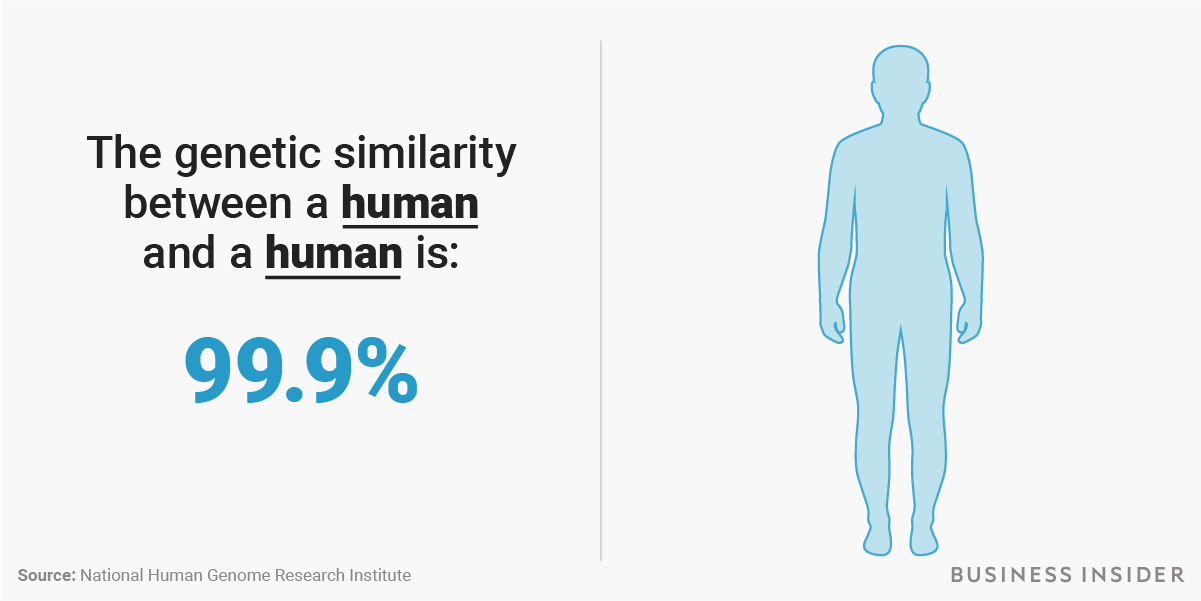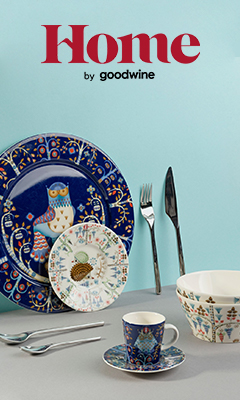What shares 99% of human DNA?

Who do humans share 99.99 DNA with
As a result, we share roughly 90 percent of our DNA with mice, dogs, cattle, and elephants. Coming closer to home, the DNA of human beings and chimpanzees is 98 to 99 percent identical. The differences between us that we (and presumably the chimps) regard as significant depend on only 1 or 2 percent of our DNA.
What are 99% of human genes identical to
Its findings suggested that all humans are 99.9% genetically identical and only 0.1% of genetic variations are responsible for the phenotypic differences, such as physical traits (eg, height, intelligence, hair, and eye color), disease susceptibility, and drug responses, among individuals in populations.
Do we share 99% of our DNA
All human beings are 99.9 percent identical in their genetic makeup. Differences in the remaining 0.1 percent hold important clues about the causes of diseases.
What thing shares the most DNA with humans
Chimpanzee
Chimpanzee: 96 percent identical
By studying the genomes of chimps (which after bonobos are our closest living ancestors), researchers are hoping to understand what makes us uniquely human.
Is 99.5% the same DNA
The DNA of any two people on Earth is 99.6 percent identical. But 0.4 percent variation represents about 12 million base pairs, which can explain many of the differences between individuals, especially if the changes lie in key genes. Our environment also contributes to our individuality.
Who do you share 100 DNA with
Identical twins
Identical twins are the only siblings that share 100% of their DNA. Non-identical brothers and sisters share about 50% of inherited gene variants, which is why siblings and fraternal twins can be so different.
Is it true that 99% of the DNA in all humans is different only 1% is exactly the same
The DNA of any two people on Earth is 99.6 percent identical. But 0.4 percent variation represents about 12 million base pairs, which can explain many of the differences between individuals, especially if the changes lie in key genes.
Are humans 99.9 genetically identical to every other person
It's often said that humans are 99.9% identical. and what makes us unique is a measly 0.1% of our genome. This may seem insignificant. But what these declarations fail to point out is that the human genome is made up of three billion base pairs—which means 0.1% is still equal to three million base pairs.
Who would I share 12% DNA with
Average Percent DNA Shared Between Relatives
| Relationship | Average % DNA Shared | Range |
|---|---|---|
| 1st Cousin Great-grandparent Great-grandchild Great-Uncle / Aunt Great Nephew / Niece | 12.5% | 4% – 23% |
| 1st Cousin once removed Half first cousin | 6.25% | 2% – 11.5% |
| 2nd Cousin | 3.13% | 2% – 6% |
| 2nd Cousin once removed Half second cousin | 1.5% | 0.6% – 2.5% |
How much DNA do we share with dog
Humans and dogs share 84 percent of their DNA, which again, makes them useful animals to study human disease processes.
How much DNA do we share with dogs
Humans and dogs share 84 percent of their DNA, which again, makes them useful animals to study human disease processes.
How much DNA do we share with cats
Cats and humans share 90% of their DNA
Do you know how genetically close your feline is it to you You may have thought that dogs would be a little closer to humans on the evolutionary scale, but it turns out that cats actually have 90.2% of the DNA in common with us! You read that right!
Can you get a 100% DNA match
Comparing the DNA sequence of a child to a parent can identify if one of them was derived from the other. This does not mean that we can achieve a probability of 100%.
Is DNA 100% correct
Studies have shown that DNA evidence is 99% accurate, making it one of the most foolproof pieces of evidence you can possibly use in court. Like fingerprints, no two people have the same DNA. If a mistake occurs, it's typically because of human error. DNA evidence can greatly alter the outcome of a case.
Is there a 100% DNA match
A 100% DNA match on Ancestry means that your relationship to your relative is almost certainly one of the relationships listed in the relationship column. We will typically only have 100% probability DNA matches for relatives who are either descended from us, or very closely related.
Is our DNA 100% human
Slivers of DNA may hold the most significant clues as to what truly distinguishes modern human beings from our earlier ancestors.
Do humans share 97 identical DNA
Our DNA is 99.9% the same as the person next to us — and we're surprisingly similar to a lot of other living things. Our bodies have 3 billion genetic building blocks, or base pairs, that make us who we are.
Can any two humans have the same DNA
The human genome is mostly the same in all people. But there are variations across the genome. This genetic variation accounts for about 0.001 percent of each person's DNA and contributes to differences in appearance and health. People who are closely related have more similar DNA.
Who shares 100% DNA
Identical twins
Identical twins are the only siblings that share 100% of their DNA. Non-identical brothers and sisters share about 50% of inherited gene variants, which is why siblings and fraternal twins can be so different.
Do I share 100% DNA with my siblings
Because of recombination, siblings only share about 50 percent of the same DNA, on average, Dennis says. So while biological siblings have the same family tree, their genetic code might be different in at least one of the areas looked at in a given test. That's true even for fraternal twins.
Do humans share DNA with trees
We also share a shocking amount of DNA with plants and insects. Plants and Insects We share around 60% of our DNA with bananas, 50% of our DNA with trees, 70% of with slugs (gross), 44% with honey bees, and even 25% with daffodils.
How much DNA do we share with a fruit fly
Perfect for genetic studies, fruit flies share 75% of the genes that cause diseases in humans. With a malleable DNA code and the ability to breed quickly, this model organism is helping scientists understand the nuances of disease development.
Do humans share DNA with dogs
Humans and dogs share 84 percent of their DNA, which again, makes them useful animals to study human disease processes. Researchers are particularly interested in specific diseases that affect both dogs and humans.
How many DNA do we share with dogs
"Humans and dogs are 95 percent identical genetically — and the diseases that affect humans including breast cancer, prostate cancer, and melanoma are almost identical."
Can you be 100% of an ethnicity
Can you have 100% ethnicity from one region Yes, it is possible to have 100% ethnicity matching one region on DNA results. This is most commonly seen in individuals who have a deep ancestry in one region of the world.


